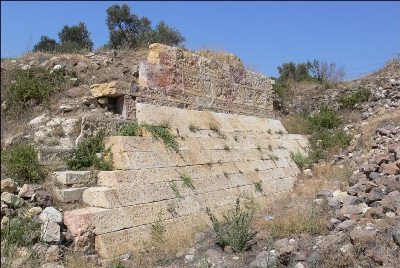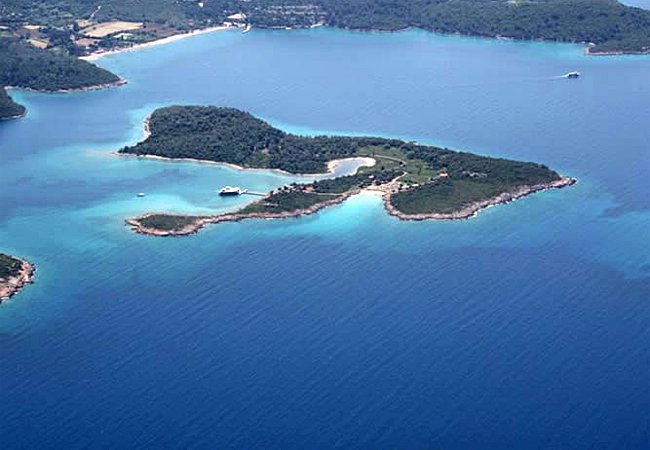Kybele Open Air Temple: BC. In the building, which was dated to 580, there were statues and reliefs of the goddess Kybele in five niches of various sizes. The votive pool carved into the rock and small niches for seafarers’ lanterns; It shows that those coming from the sea worshiped here. The city walls on the rocks on which the sanctuary leans show four different periods of wall construction. Archaic city walls were built without mortar. While lime mortar was used in the Roman period walls; Khorasan Mortar consisting of lime mortar, sand, brick pieces and tile powders was used in the walls of the Genoese and Ottoman periods.
Athena’s origin goes back to the Babylonian Queen Izdar. Kybele is the goddess of Anatolia. Kybele has been highly respected since the Archaic period. There are also sacred areas in Yeldeğirmenli Hill and İncir Island.
Theater: The theater, which dates back to 340-330 BC, was found in recent excavations. IT IS THE OLDEST THEATER IN ANATOLIA. The excavation was made in two separate sections. In the first section, the Analemna Wall was unearthed in a well-preserved condition (4.5 m. High); 4 separate steps were found in the second section. Fuyte Oyta inscription was found on the steps. From here, it was revealed that each quarter is located in a separate section. BUSINESS. It was used as a ceramic garbage dump in the 1st century and as a necropolis (cemetery) in the 2nd century. It is made of Tufa, which is not a durable stone type and is known as Foça Stone in the region.

Archaic Wall & Herodotus Wall: During the recent excavations, 5 km. It was revealed to have long walls. City walls dating back to 590-580 BC were found during excavations on the Maltepe Tumulus hill. Since Herodotus frequently mentions these walls, it is known as the Herodotus Wall. Located next to the buttress wall, 4m. Persian arrow and spearheads, broken amphorae, old catapult cannonballs excavated in the excavations showed that there was a great war in 546 BC. The war between the Persian Commander Harpagos’ army and the Phokaians resulted in the victory of Harpagos.
Where is Foca














